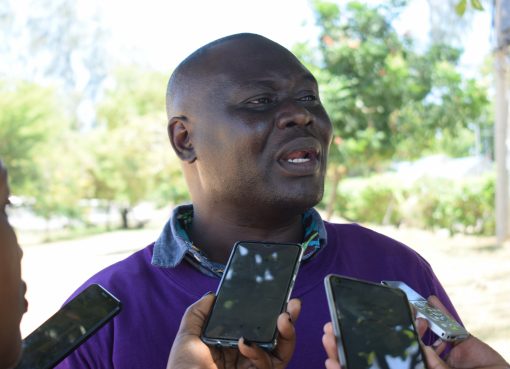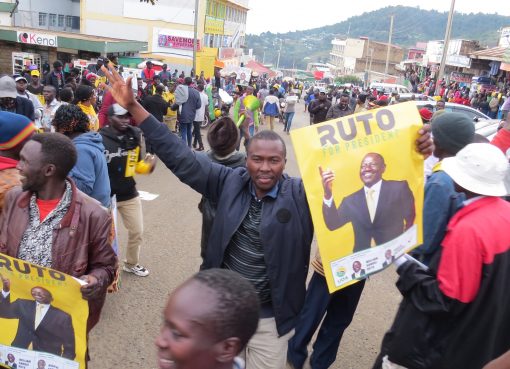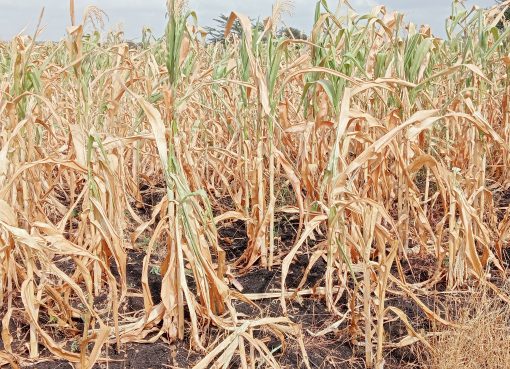
Kajiado residents living along the Kenya-Tanzania border have appealed to the government to tighten security along the border to prevent movement in and out of the two neighbouring countries.
The residents from Pakase, Loitokitok, Meto and Namanga expressed their concern with the rising number of Covid-19 positive cases in Tanzania, saying that they were at risk as Tanzanians still entered the country through illegal routes to conduct trade.
As at April 22, Coronavirus positive cases in Tanzania were confirmed to be at 284.
The locals noted that Tanzanians entered the country through ‘panya routes’ along Namanga and travel to Il Bissil town to sell their livestock while others entered through the porous border at Pakase Kajiado West to sell their livestock and other wares at Shompole market.
David Naikuni, a resident of Pakase, called on the security officials and Nyumba Kumi to heighten surveillance at the illegal entry points to prevent persons from the neighbouring country from getting in.
Naikuni noted that Chiefs and Nyumba kumi elders know all the residents of the area and they should be able to single out any foreigners and prevent them from entering into the country.
“We are concerned with the rising cases of Corona virus in Tanzania. We are at risk as the Tanzanians still enter the country through illegal routes and urge the Government to heighten surveillance at the bordering villages through chiefs and Nyumba kumi elders,” said Naikuni.
John Lempapa, a livestock trader at Il Bissil market, reiterated Naikuni’s remarks adding that there were many Tanzanians still buying and selling livestock at the market despite the One Stop Border Post at Namanga restricting movement of persons.
“We still have many Tanzanians coming here to buy livestock or engage in business despite movement of persons being restricted at the border. This only means that they get into Kenya illegally through ‘panya routes and this is quite worrisome as their country has a high number of corona virus cases,” said Lempapa.
The Interior Chief Administrative Secretary (CAS), Hussein Dado who visited the Kenya -Tanzania border points at Kwale, Taita Taveta and Kajiado counties noted that illegal entry points into the country remained a challenge in the fight against Covid-19.
Dado said Nyumba Kumi elders were being engaged to ensure that movement within the bordering villages is restricted so as to contain the spread of Coronavirus within both countries.
“As you are aware, with any border towns, we have people with relatives on the other side and they come visiting here and going back. We are working with Nyumba Kumi officials to ensure that there is no movement within the two countries so as to prevent the spread of the virus,” said Dado.
The Kajiado County Commissioner (CC), Joshua Nkanatha said those entering the country through clandestine routes would be arrested and taken into quarantine at their own cost before being charged with entering the country illegally.
Nkanatha emphasized that security had been heightened at the Namanga border post and no persons or vehicles were allowed to enter the country except those ferrying goods and essential services.
Meanwhile, small scale business community in Kitengela town received more than 10,000 face masks, sanitizers and hand washing facilities from the County Government of Kajiado.
Governor Joseph Lenku said the move was aimed at cushioning residents on the cost of purchasing the materials, adding that plans were in place for the County’s polytechnics to start making the face masks at a lower price.
“We have received the right specifications from the relevant government authorities and we have started the process of making them. By end of next week, we shall have some homegrown masks,” said the Governor.
He said the County Government was continuing to prepare itself against Covid-19 and announced that there were 60 beds across the County ready for use by patients.
Lenku called on the business community to be responsible for their customers and ensure they were all sanitized before entering their business premises.
He acknowledged that salons and barbershops were now allowed to carry out their businesses on condition that all workers wore masks and gloves and were sanitizing themselves after serving each customer.
“We heard your cries on the need to keep earning a living. However, you are at high risk and that is why we want you to take all precautions when serving your customers,” added the Governor.
He said the residents were yet to fully adhere to the one metre social distance guideline which now remained the biggest threat in the spread of the disease.
Among the organized groups that benefitted from the consignments of masks and sanitizers were Kitengela retail market traders, hawkers, salon and barbershop operators, matatu drivers and conductors, local police officers, sand lorry drivers and their turn boys, and tuk tuk operators.
By Rop Janet





